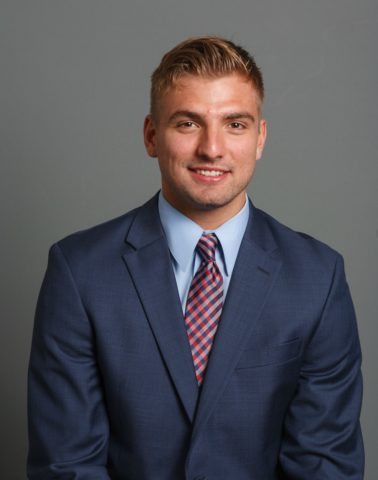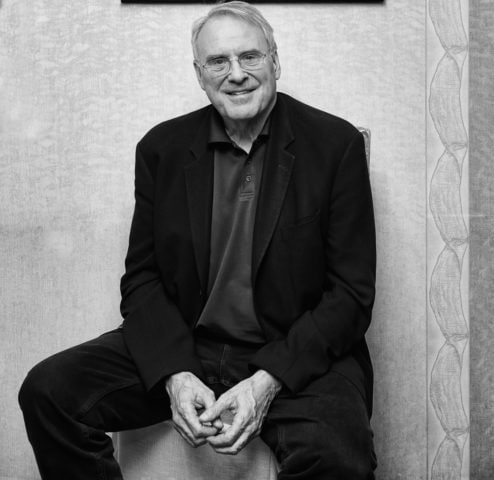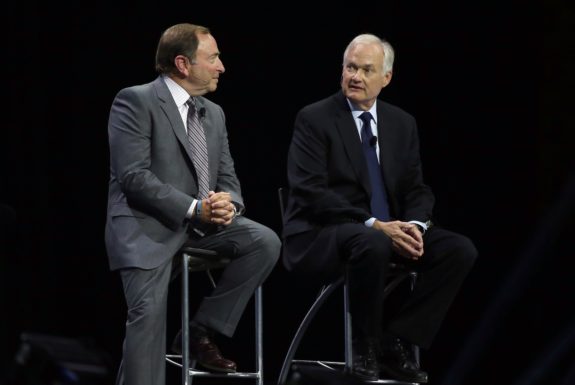The NHL Department of Player Safety has suspended Tom Wilson of the Washington Capitals for three games for his hit on Penguins forward Zach Aston-Reese in Game 3. Aston-Reese broke his jaw on the play and is suffering from a concussion. His season is done.
The decision comes less than 24 hours before Game 4 of the Capitals and Penguins’ second-round series in which Washington leads 2-1. The decision is interesting for two reasons. It signals that the NHL is starting to take the dangers of brain injuries seriously. It also suggests the NHL realizes it has to start to better explain the decisions it makes. Whether this is an aberration or new standard operating procedure remains to be seen.
Wilson’s Hit: Head or Shoulder?

Tom Wilson’s hit was brutal. It was either delivered to Aston-Reese’s head/face or his shoulder, depending on your interpretation of the play. Plenty of people seem to disagree. Some angles of the play suggest that the initial point of contact was the shoulder. It seems that’s what officials believed as well, as no penalty was called on the play. Even if Wilson did get the shoulder first, that doesn’t mean the hit is a good one. The league’s Department of Player Safety looks for principal point of contact rather than the first point of contact.
No one doubts the damage that the hit did to the young Penguins forward. Aston-Reese left the game with his face bloodied and battered. With Aston-Reese’s face taking the damage it did, it’s hard to argue against the face being the principal point of contact. Last time I checked, the face is part of the head.
Transparency in Sentencing
What was somewhat surprising was the lengths the NHL Department of Player Safety went to explain and perhaps even justify their decision.
In a nearly five-minute video explaining the decision, the NHL describes the play in great detail. They ruled that Wilson’s hit on Aston-Reese “(made) the head the main point of contact on a hit where such head contact was avoidable.” Part of their rationale was how Wilson seemed to pivot to deliver the check with his left shoulder. By elevating up and into the hit, the NHL seems to be suggesting how Wilson set himself up before the point of contact was relevant in their decision to suspend.
Washington’s Tom Wilson suspended three games for an illegal check to the head on Pittsburgh’s Zach Aston-Reese. https://t.co/rrZ8Hp3XkE
— NHL Player Safety (@NHLPlayerSafety) May 2, 2018
It doesn’t help that Wilson was suspended twice for two separate illegal hits in the 2017 preseason, and is defined as a “repeat offender” by the league. This is tied for the longest suspension in the 2018 postseason. Unmentioned in the video is Wilson’s Game 2 hit on Brian Dumoulin, which knocked the Penguins defenseman out of the game but didn’t result in any discipline. Was it relevant?
Hits to the Head
It is impossible to separate this hit and the suspension from the broader context around head injuries. Developments in medical science mean we simply know more today than in the past. fMRIs and PET scans provide visual proof that hits to the head do permanent damage to the brain. Anxiety, depression, memory loss, and addiction are all associated with repeated blows to the head. What should be done?
Enter Ken Dryden. Brett Popplewell argues Dryden’s latest work, Game Change, is the most important book about hockey in decades. It is a biography of a player, a history of the game, and a cautionary tale. For Dryden, the speed of the game has raised the stakes. He argues that at hockey’s core there has always been a historic compromise between performance and safety. Right now, given what we know about head injuries, that compromise is out of whack.

Dryden proposes two “small” changes for the NHL. “No hits to the head; no finishing your check.” What we are talking about here, according to Bob McKenzie, is nothing less than a cultural sea change in hockey. For McKenzie: Any hit to the head is a bad hit to the head; any hit to the head should be a penalty. The reason? The fallout from hits to the head can be so severe and life-altering that whatever impact the new rule would have on how the game is played simply pales in comparison. It is hard to deny Dryden’s powerful warning that by delaying taking action “we waste careers and lives.”
Players are starting to take this all very seriously indeed.
This is one of the scariest & hardest things I’ve ever had to write but here it goes. I am pledging my brain to Ted Carrick and the @Carrickinst (Carrick Institute) to be used for study and furthering understanding of the consequences of traumatic brain injury when I pass @NHL
— Daniel Carcillo (@CarBombBoom13) May 2, 2018
A New Era for the NHL?
The last chapter of famed netminder’s new book is a direct challenge to NHL commissioner Gary Bettman. After 25 years as NHL Commissioner, he has overseen both successes and controversies. The issue of hits to the head may be the biggest challenge to date.

In the past, when this issue has arisen, Bettman retreated into lawyerly nitpicking, questioning the questions and disputing the premise of any questions directed at him. An example came back in 2016 in his response to Richard Blumenthal, Democrat of Connecticut and the ranking member of the Senate’s Consumer Protection subcommittee. Blumenthal sent Mr. Bettman a letter asking pointed questions about the league’s position regarding concussions and CTE. Responding to written questions from a United States senator about the effects of concussions in hockey, Bettman continued to deny a link between concussions and CTE.
While Capitals fans and old-school hockey fans might reject this suspension, it is clear the NHL is taking a harder look at hits to the head. Questions remain about how to define intention and how to sort out contact to the shoulder that results in contact to the head. Since the NHL doesn’t seem to know what goalie interference is, or how to make sense of the offside rule, clarity on this is unlikely in the short term. This decision cannot be separated from the dangers that come with the sport, or the speed that can lead to injurious contact. However, I predict the majority of fans will recognize this suspension as the first step toward a new direction. I am sure Bettman will thank Dryden at some point.